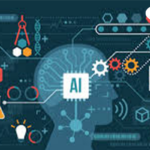Introduction
In the 21st century, social media has become an integral part of daily life. Platforms like Facebook, Instagram, Twitter (now X), TikTok, and LinkedIn have transformed how people communicate, share information, and perceive the world. While social media offers numerous benefits—such as instant connectivity, business opportunities, and educational resources—it also poses significant risks to mental health.
This article explores the multifaceted relationship between social media and mental health, examining both positive and negative effects. It delves into psychological studies, expert opinions, and real-life experiences to provide a balanced perspective. The discussion covers key areas such as:
- The Rise of Social Media and Its Influence
- Positive Effects of Social Media on Mental Health
- Negative Effects: Anxiety, Depression, and Low Self-Esteem
- The Role of Cyberbullying and Online Harassment
- Social Media Addiction and Its Consequences
- The Impact on Sleep and Productivity
- Social Comparison and the “Highlight Reel” Effect
- The Influence of Social Media on Body Image
- Strategies for Healthier Social Media Use
- The Future of Social Media and Mental Health Awareness
By the end of this article, readers will have a deeper understanding of how social media affects mental well-being and practical ways to mitigate its negative impacts.
1. The Rise of Social Media and Its Influence
Social media has evolved rapidly since the early 2000s. Platforms like MySpace and Friendster paved the way for giants like Facebook (2004), Twitter (2006), Instagram (2010), and TikTok (2016). Today, over 4.9 billion people use social media globally, spending an average of 2.5 hours per day on these platforms (Statista, 2023).
This widespread adoption has reshaped human interaction. People now rely on social media for:
- Communication (messaging, video calls)
- News consumption (trending topics, viral stories)
- Entertainment (memes, short videos)
- Professional networking (LinkedIn, freelance opportunities)
- Self-expression (posts, stories, blogs)
However, the constant exposure to curated online personas has led to psychological consequences, both positive and negative.
2. Positive Effects of Social Media on Mental Health
Despite its drawbacks, social media offers several mental health benefits:
A. Enhanced Social Connectivity
Social media bridges geographical gaps, allowing people to stay connected with friends and family. For individuals with social anxiety, online interactions can serve as a safe space to communicate without face-to-face pressure.
B. Support Communities
Many users find solace in online support groups for mental health, chronic illnesses, or niche interests. Platforms like Reddit and Facebook host communities where people share experiences and advice.
C. Access to Mental Health Resources
Therapists, counselors, and mental health advocates use social media to disseminate helpful content. Instagram pages like @the.holistic.psychologist and TikTok therapists provide free mental health education.
D. Opportunities for Self-Expression
Creative individuals use platforms like YouTube and TikTok to showcase talents, boosting confidence and career prospects.
3. Negative Effects: Anxiety, Depression, and Low Self-Esteem
While social media has advantages, excessive use correlates with mental health issues:
A. Increased Anxiety and Depression
Studies show that heavy social media users report higher levels of anxiety and depression (Royal Society for Public Health, 2017). Constant exposure to negative news, political debates, and online conflicts contributes to stress.
B. Fear of Missing Out (FOMO)
Seeing others post about social events, vacations, or achievements can trigger FOMO, leading to feelings of inadequacy.
C. Dopamine-Driven Feedback Loops
Likes, comments, and shares activate the brain’s reward system, creating dependency. When engagement is low, users may experience self-doubt.
4. The Role of Cyberbullying and Online Harassment
Cyberbullying is a severe issue, especially among teenagers. Unlike traditional bullying, online harassment can be relentless, with victims facing:
- Anonymous hate messages
- Public shaming
- Revenge porn and doxxing
A 2022 study by the Cyberbullying Research Center found that 37% of teens have experienced cyberbullying, leading to depression and suicidal thoughts.
5. Social Media Addiction and Its Consequences
Social media addiction mirrors substance dependence, with symptoms such as:
- Compulsive checking of notifications
- Neglecting real-life responsibilities
- Withdrawal symptoms when offline
The World Health Organization (WHO) has recognized “gaming disorder,” and experts argue that social media addiction should be classified similarly.
6. The Impact on Sleep and Productivity
Excessive screen time, especially before bed, disrupts sleep patterns due to:
- Blue light exposure (suppresses melatonin)
- Late-night scrolling (delays sleep)
Poor sleep leads to fatigue, reduced productivity, and impaired cognitive function.
7. Social Comparison and the “Highlight Reel” Effect
Social media presents an unrealistic “highlight reel” of people’s lives. Users compare their behind-the-scenes struggles to others’ curated successes, fostering insecurity.
8. The Influence of Social Media on Body Image
Platforms like Instagram promote unrealistic beauty standards, leading to:
- Body dysmorphia
- Eating disorders
- Excessive cosmetic procedures
A study by the Journal of Eating Disorders (2021) found that 60% of teens felt pressured to look a certain way because of social media.
9. Strategies for Healthier Social Media Use
To minimize negative effects, users can:
✔ Set time limits (use app timers)
✔ Curate a positive feed (unfollow toxic accounts)
✔ Take digital detoxes (schedule offline periods)
✔ Engage in real-life activities (hobbies, exercise)
10. The Future of Social Media and Mental Health Awareness
Tech companies are introducing features to promote well-being, such as:
- Instagram’s “Take a Break” reminders
- TikTok’s screen time management tools
- AI-driven mental health chatbots
Governments and organizations are also advocating for digital literacy programs to teach healthy online habits.
Conclusion
Social media is a double-edged sword—it connects the world but also contributes to mental health challenges. By understanding its effects and adopting mindful usage habits, individuals can enjoy its benefits while safeguarding their well-being.
As society becomes more digitally immersed, ongoing research and policy changes will be crucial in ensuring that social media remains a tool for connection rather than a source of harm.




